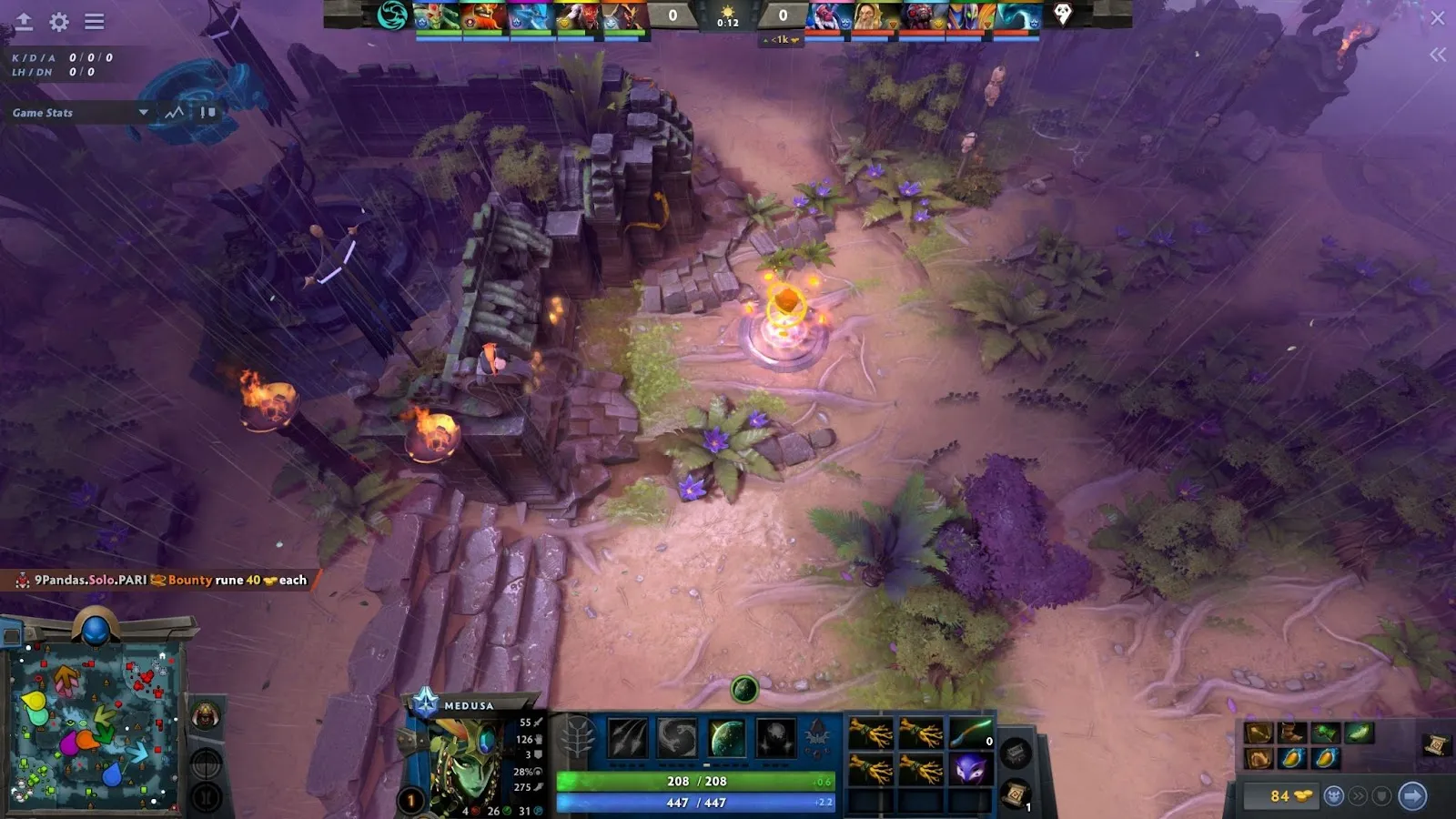Intro
We’ve all been there. By the opening bell the enemy has got first blood and claimed three of the four runes. Someone on your team types in GG and tilts away the remainder of the forty-five minute game.
But how much does first blood, or the initial runes, matter? Let’s look at some limited data to discover the answer. Maybe it will surprise us.
First, I looked at a random sampling of twenty-five of my games. Some of the games are solo ranked. I’m Legend 3/4 currently. Some of the games are unranked in a party that includes Archons, Legends, Ancients, and even an Immortal. Across the games I play all positions.
In those games I have sixteen wins and nine losses. I play five games as a position 5 support, four as roaming, five as offlane, three as mid, and seven as carry. It is an unusual sample, I suppose. I usually play support, roaming, or offlane. In fourteen games my team got first blood. We claimed three of the runes in only three games, and were limited to one rune in ten games. Neither team ever claimed all four runes
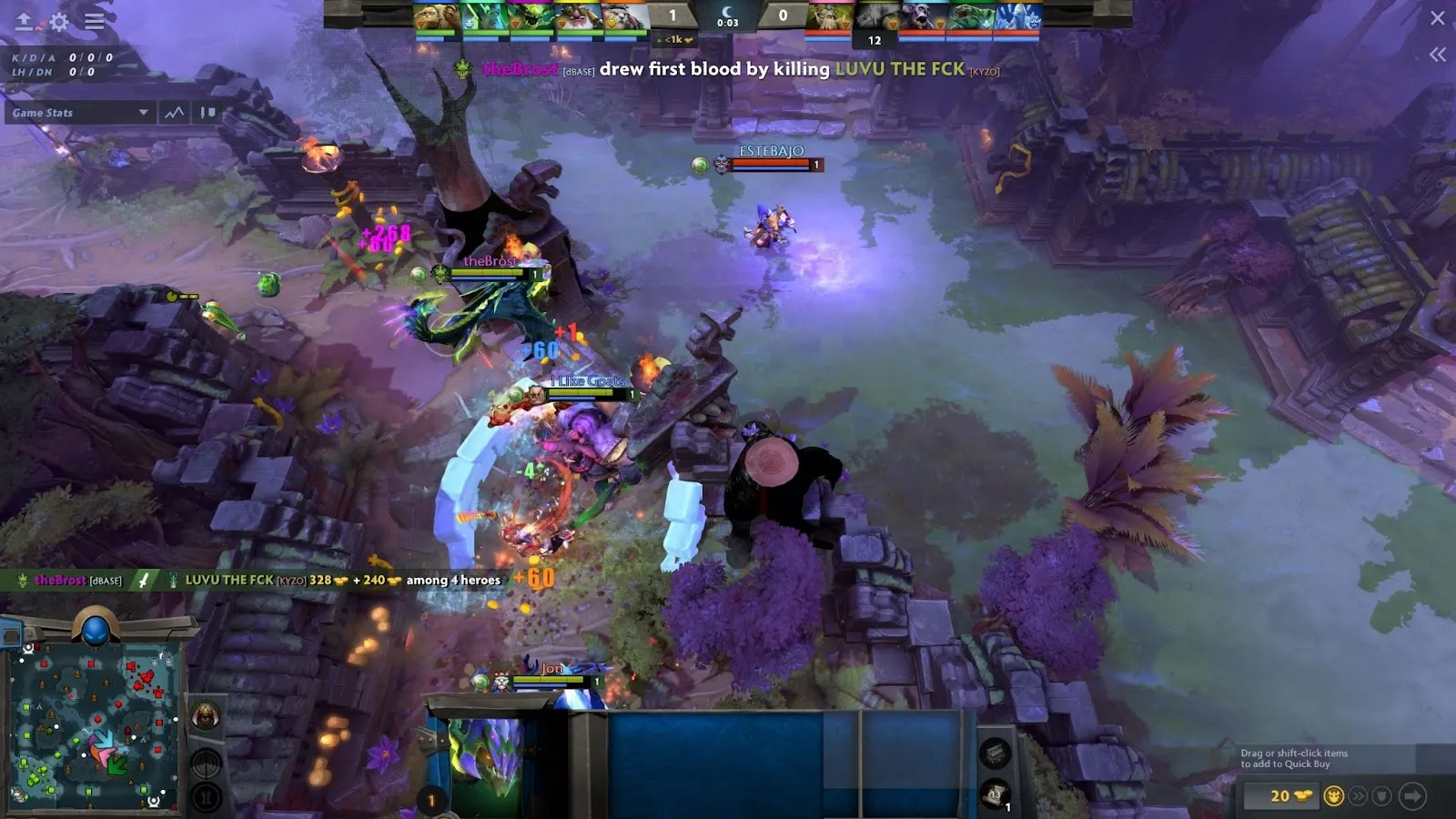
Does first blood matter?
Does first blood matter? You might assume yes. But in twenty-five games, the winning team only got first blood nine times. The team that got first blood lost sixteen of twenty-five games! Another way of saying this; first blood only led to wins 33% of the time. I won nine games in which the enemy team got first blood. I only lost two when the enemy got first blood. It’s crazy to say this, but first blood seems like a significant disadvantage. Jeez, I’m going to start giving up first blood on purpose!
Ok, so how about runes? Does the team that claims more runes have an increased chance of winning the game? Of the twenty-five games, only thirteen had a disparity in the opening runes. Of those thirteen, the team that recovered three runes (again, no team ever got four), won six of the games, while the team that held only one rune, won seven. That’s slightly in favor of less runes: fifty-four percent.
Finally, how about a team that gets first blood and wins the majority of the runes?
As Skywrath my team got 3 runes and first blood. We lost.
As Axe we got 1 rune and gave up first blood. We won.
As Luna we got 1 rune and gave up first blood. We lost.
As Riki we got 1 rune and gave up first blood. We won.
As Wraith King we got 3 runes and first blood. We won.
As Wraith King we lost 1 rune and gave up first blood. We lost.
As Disruptor we got 1 rune and gave up first blood. We won.
So, the team that gets three runes and first blood wins … 3 out of 7 games, 42%.
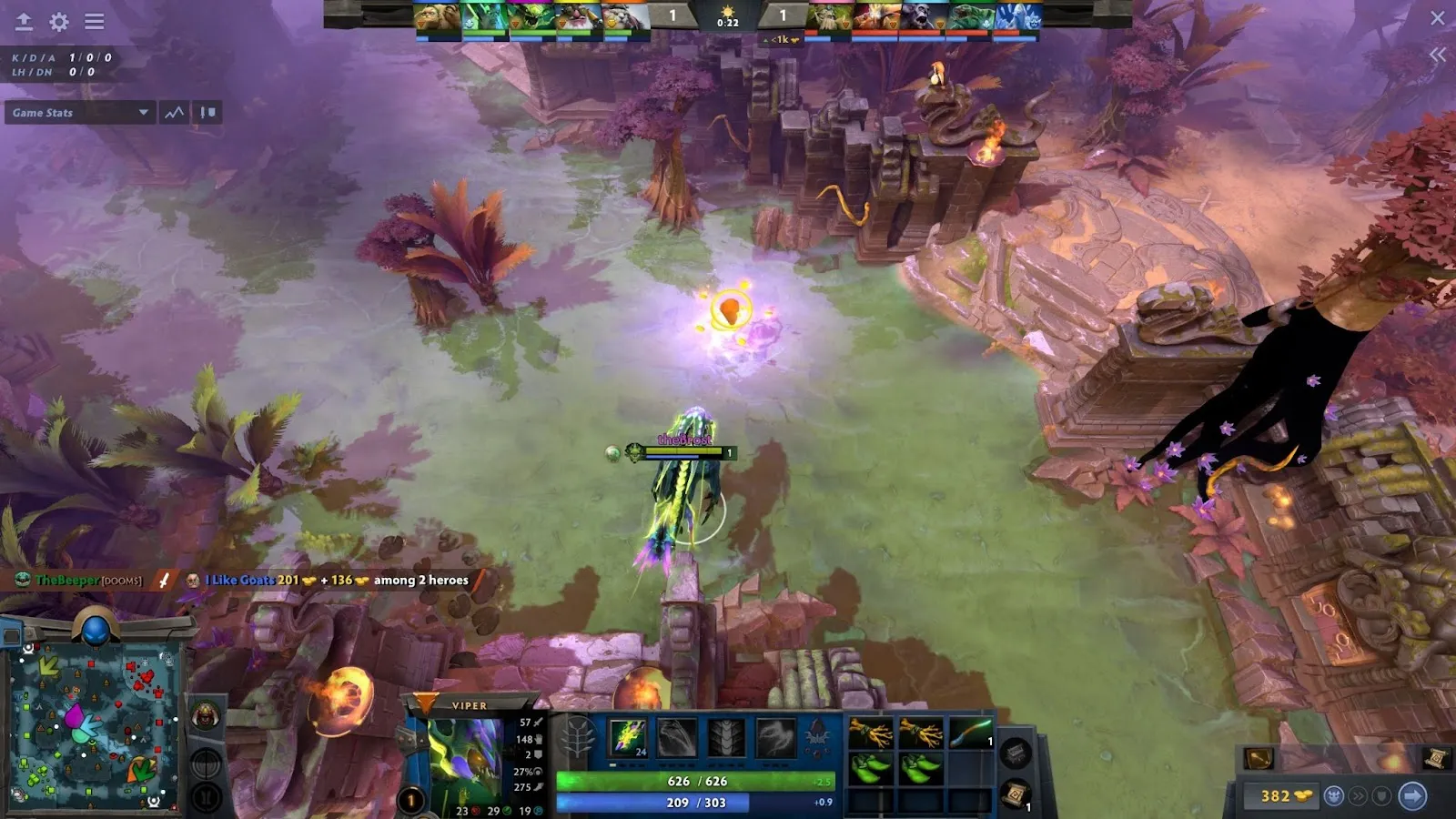
I understand that these are small samples. If someone with superior computer skills can parse the data, I’d be glad to look at it. Over one hundred, a thousand, one million, or a billion games, maybe we’d see, with better precision, that runes and first blood offer advantages.
Lacking that, here are four quick theories as to why we arrived at this outcome. One, I play a strange style of Dota. I can’t define it, but maybe I prioritize different objectives. Two; I am bad at the first few minutes, but above average while playing from a deficit. I play better in the mid to late game. As long as my team advances through the opening unbloodied, it doesn’t matter if the opposing team earns an early advantage. Three, in Legend, runes and first blood don’t matter, or may be an active obstacle to winning. Teams commit too many resources to take runes or first blood. Four, maybe this result is random noise. It’s only twenty-five games. If I looked at more, I’d arrive at a different outcome.
Pro Scene
To contrast, here’s an example from the pro scene.
I took data from the twenty-four games at the end of the Bali Major.
This sample includes the Grand Finals (Liquid vs GG), LBFinals (Tundra vs Liquid), LBSemis (Liquid vs Quest), UBFinals (Tundra vs GG), LBQuarters (Quest vs LGD) and (9Pandas vs Liquid), UBSemis (Liquid vs Tundra) and (GG vs Quest), and the LB Round 2 of beastcoast vs 9Pandas.
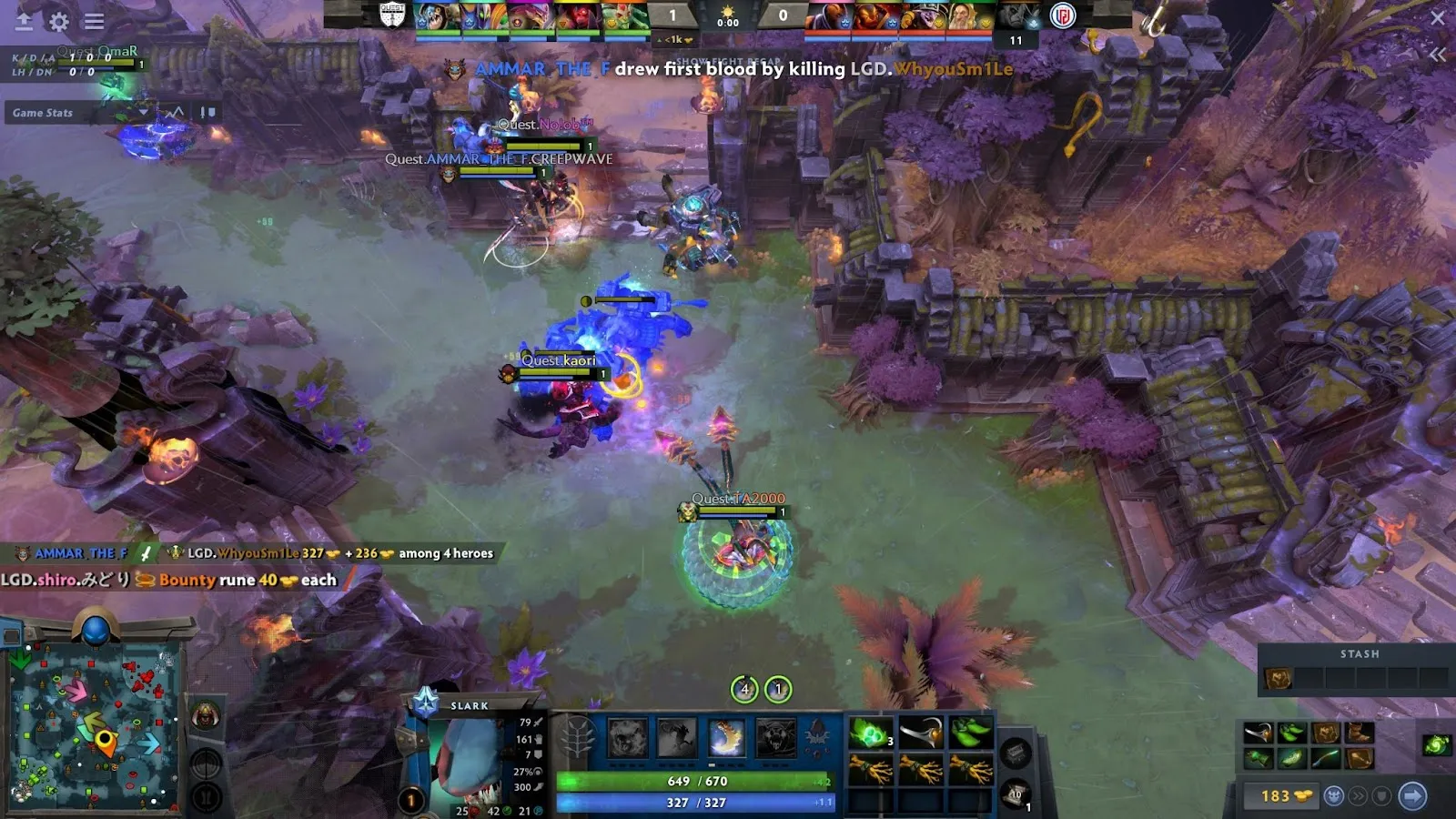
In these 24 games, no team claimed all 4 runes. In nine games one team recovered three runes. In all games someone got first blood. Of the 24 games, the team that got first blood won 13 of 24. That’s a 54.16% victory rate. Small, but nothing to sneeze at. Runes were also worth a small advantage. The team that claimed three runes won 5 out of 9, or 55.55%.
And if a team got first blood and three runes? Of the twenty-four games, that happened in five. The team that got both advantages won 3 out of 5, or 60%.
Conclusion
So what are we seeing here? These results have the outcome we assumed would occur. We’d expect bonus gold from runes or first blood to benefit the team. But it isn’t overwhelming. These are small gains. And we should be glad runes and first blood aren’t overwhelming, or we’d be watching TI4 again. No one wants that. Still, it isn’t surprising that pro teams are better able to leverage these small gains into reasonable advantages, unlike Legends players.
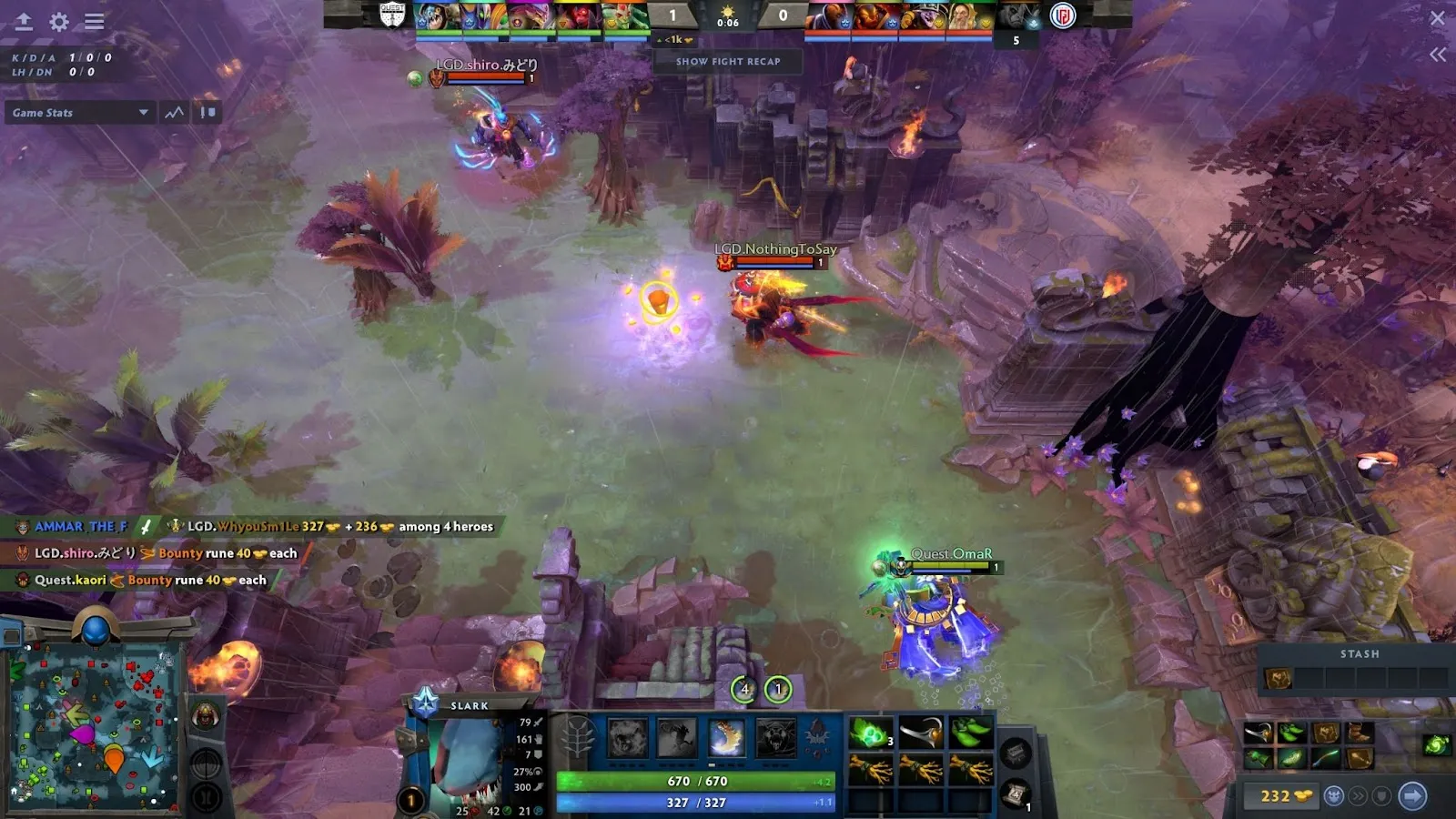
We can’t write off another possibility. With only twenty-four games, this result could also be noise. If we tested a hundred or a thousand pro games, are we certain we’d arrive at the same outcome?
Why would teams that get runes or first blood lose (especially in the case of Legend players)? One reason could be expenditure. Sure, the team earns gold for runes or first blood. But, what if you expended more than you earned? To secure the third rune or first blood, maybe a hero leveled up an inferior skill, like Tombstone on Undying instead of Decay. Maybe you cast too many spells to secure that third rune. Or maybe you suffered too much damage getting first blood. What appears like a victory ends up neutral, or even a minor setback.
As a final thought, these results aren’t static. Over patches, updates, and meta changes there’s bound to be fluctuation in the value of runes and first blood. Over time the advantage they confer (if indeed they confer any advantage) could rise and fall.
Good luck, have fun.
